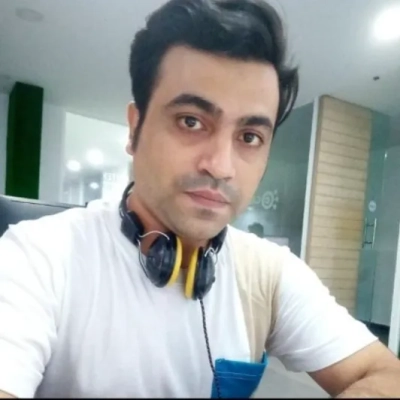26 Key Qualities Vcs Look for in a Strong Startup Team
Discover the pivotal qualities that venture capitalists prioritize in startup teams, distilled from the wisdom of seasoned industry professionals. This article delves into the essence of what makes a team investment-worthy, highlighting the synergy of resilience, data-driven approaches, and diversity. Glean expert perspectives on why a cohesive and skilled team is often deemed more crucial than the initial business idea itself.
- Cohesive Team Crucial for Investment Decisions
- Resilience and Data-Driven Mindset Essential
- Team More Crucial Than Initial Idea
- Complementary Skills and Clear Vision Required
- Diverse Team Impacts Growth and Innovation
- Team-Focused Leadership Delivers Remarkable Results
- Team Drives Company Forward
- Diverse Skills and Passion Valued
- Adaptability and Deep Understanding Essential
- Team Value Over Product
- Team Drives Startup Success
- Emotional Intelligence and Analytical Mindset Needed
- Adaptability and Feedback Openness Key
- Experience and Operational Skills Crucial
- Team Alignment and Resilience
- Complementary Skills and Clear Communication
- Complementary Skills and Resilience
- Technical Expertise and Business Acumen Needed
- Complementary Skills and Communication
- Team Determines Business Success
- Complementary Skills and Clear Vision
- Team Drives Innovation and Growth
- Passion and Drive Essential
- Team Determines Execution and Sustainability
- Diverse Skills and Critical Decisions
- Team Determines Execution and Sustainability
Cohesive Team Crucial for Investment Decisions
A cohesive and skilled founding team is absolutely critical to my investment decisions. In my opinion, one of the most telling qualities is how well the team handles uncertainty. Startups often face unexpected challenges, and I've observed that teams with complementary problem-solving styles are much more effective. For example, I once advised a startup where the founder focused on operational stability, while the co-founder excelled at customer acquisition. That dual focus led to a 30% revenue growth in the first year, proving their strengths were well-matched. I also pay close attention to how team members divide their responsibilities, as it's a sign of clear strategy and trust among them.

Resilience and Data-Driven Mindset Essential
In my investment decisions, a strong startup team is paramount. I focus on resilience and a data-driven mindset, traits that fueled my journey from medicine to business. During my time expanding a diagnostic imaging company in Sao Paulo, I witnessed how resilience turned small teams into high-achievers, driving a 50% revenue increase year-over-year.
I also look for the ability to diagnose and address challenges effectively. Just as my medical training taught me to diagnose health issues, I expect founding teams to identify business challenges and implement precise solutions. This approach was instrumental in launching Profit Leap and developing our AI advisor, HUXLEY, demonstrating how strategic problem-solving accelerates growth.
Furthermore, it's critical to have visionary leadership and an openness to innovation. When I co-designed HUXLEY, it revolutionized small business operations, showcasing the power of combining technology with strategic insight. I seek founding teams that not only accept innovation but drive it, ensuring they're always ahead of market changes.

Team More Crucial Than Initial Idea
After working with over 100 startups at spectup and evaluating numerous ventures during my time at BMW Startup Garage, I've learned that the founding team is often more crucial than the initial idea itself. I remember one insight from my N26 days - even the most innovative fintech solution needs the right people to turn it into a successful business.
The first quality I look for, which I learned to spot during my time at Deloitte's Innovation & Ventures team, is the founders' ability to adapt and learn quickly. I'd rather back a team that's open to feedback and can pivot when needed than one that's rigidly attached to their original idea. During my work at diffferent, I saw how the most successful teams combined deep domain expertise with the humility to admit what they don't know.
Another critical aspect is the team's complementary skills - something I picked up while working on international expansion at Deutsche Bahn. A founding team should cover key areas like technology, business development, and market understanding without major gaps. It's not just about individual brilliance; it's about how well the founders work together and complement each other's strengths.
Perhaps most importantly, I look for founders who understand that building a successful startup is a marathon, not a sprint. At spectup, we've seen that teams with realistic expectations and strong resilience typically outperform those focused solely on quick wins.

Complementary Skills and Clear Vision Required
A strong startup team is absolutely critical to my investment decisions. Over the years, I've seen time and time again that the success of a business isn't just about a great idea, it's about the people who execute it. I look for founding teams with a complementary mix of skills, a clear vision, and an ability to pivot when necessary. Resilience, communication, and accountability are non-negotiable. A startup journey is often a rollercoaster, and I want to know that the team is equipped to weather the challenges and remain cohesive under pressure. In addition, I look for founders who truly understand their industry, have an obsession with their customer, and a willingness to seek and implement feedback, even when it's tough to hear.
One example I can share is from a business I worked with in the UAE that initially struggled to scale their operations due to inefficiencies within their leadership team. The founders were brilliant individuals with a groundbreaking idea, but they had overlapping skill sets and were constantly stepping on each other's toes. I coached them on building a more structured approach to roles and responsibilities, focusing on where each founder could deliver the most value. I also helped them recruit a COO who complemented their skills and brought much needed operational expertise to the table. Within 12 months, they doubled their revenue and reduced operating costs, simply because they had the right team dynamics in place. My years of experience in helping businesses reorganize and optimize gave me the insight to see the gaps they couldn't see themselves, and the results spoke for themselves. A strong team isn't just an asset, it's the foundation of scalable success.
Diverse Team Impacts Growth and Innovation
A strong startup team is absolutely crucial to my investment decisions. Having guided SuperDupr to the forefront of the digital solutions space, I know how a cohesive and diverse team can drastically impact growth and innovation. At SuperDupr, I've focused on nurturing a team committed to excellence and innovation, which has been a key factor in our success. I look for founding teams that exhibit a clear understanding of market dynamics and the ability to implement strategic, data-driven solutions. Our success with projects like The Unmooring illustrates how a strong team with diverse skills in design, development, and strategy can transform a simple idea into a thriving digital presence. This initiative highlighted the importance of teams that are agile and can quickly adapt to changing landscapes to deliver measurable results. In my experience at SuperDupr, a strong startup team is crucial for any investment decision. I look for teams that embody diversity, creativity, and a commitment to excellence, traits that have been integral to our own success. For example, our diverse team of talented professionals has enabled us to develop and implement unique process methodologies, enhancing client satisfaction and operational efficiency. I also value a team's ability to accept data-driven strategies, as seen in our work with clients across various industries, where measurable results were a direct outcome. This adaptability and strategic mindset are key qualities I seek in a founding team. Furthermore, the team's potential to build and nurture strategic partnerships is essential, as collaboration leads to expanded offerings, just like our partnerships with leading technology providers have done for us. I prioritize teams that have a vision for growth and the operational discipline to execute that vision, as demonstrated in our rapid evolution at SuperDupr. These are the qualities that assure a promising trajectory for startups.

Team-Focused Leadership Delivers Remarkable Results
Our team-focused leadership model delivered remarkable results. By implementing a structure where each leader owned their specialty area - from product development to market expansion - we created a system that brought our plastic-free vision to life. The proof came through our team's ability to drive growth. When facing challenges in material sourcing, our dedicated product expert developed new eco-friendly solutions while our operations specialist rebuilt supply networks. This teamwork helped us expand from serving local markets to establishing a presence across multiple regions within a year and a half. Most notably, our approach to shared leadership caught investors' attention. Having specialists who deeply understood both sustainability and business operations showed we could scale while maintaining our environmental commitments. This experience shows why investors look beyond solo founders - they want teams that combine vision with varied expertise to tackle industry challenges. The success of our model proves that bringing together different skills creates stronger, more resilient sustainable businesses.

Team Drives Company Forward
A strong startup team is essential, serving as the backbone of the company and building the foundation for its future success. A capable team drives the company forward, ensuring that all aspects of the business run smoothly and efficiently. They are responsible for making key strategic decisions, handling the day-to-day operations, and coming up with innovative solutions to challenges that arise.
A strong team doesn't just execute tasks—they create a culture of collaboration, resilience, and adaptability. As an investor, I always look for teams that demonstrate a clear vision for the future, a genuine passion for their product or service, and a well-thought-out, actionable plan to achieve their goals. These qualities are essential for navigating the inevitable challenges of the startup journey and ensuring long-term success.

Diverse Skills and Passion Valued
I have had the opportunity to work with many different startup companies seeking funding for their ventures. Through my experiences, I have learned that having a strong founding team is crucial to the success of any startup.
I look for a diverse range of skills within the founding team. A successful startup requires individuals who excel in various areas such as marketing, finance, operations, and technical expertise. Having a well-rounded team ensures that all aspects of the business are covered and allows for effective decision making.
In addition to skills, I also value passion and dedication in a founding team. Starting a business can be challenging and requires long hours and hard work. Therefore, it is important for the team to have a strong drive and enthusiasm for their idea. This not only keeps them motivated during difficult times but also inspires confidence in potential investors.

Adaptability and Deep Understanding Essential
When I first started investing in startups, I thought a brilliant idea was all that mattered. Boy, was I wrong. Let me tell you about a pivotal moment that changed my perspective entirely.
A few years ago, I met two startups in the same week. Both had innovative ideas in the AI space. The first team, led by Amir, had impressive résumés from top tech companies. Their pitch was polished, their product demo slick. I was ready to write a check on the spot.
The second team, headed by Elena, didn't have the same pedigree. Their pitch was a bit rough around the edges, but something about their energy caught my attention. Elena's eyes lit up when she talked about their vision. Her co-founder, Marcus, finished her sentences, showing a deep understanding of both the tech and the market.
I decided to invest in both. Fast forward 18 months, and the results couldn't have been more different.
Amir's team had imploded. Despite their impressive backgrounds, they couldn't agree on a direction. Ego clashes led to two co-founders leaving, and the product hadn't progressed much beyond that initial demo.
Elena's team, on the other hand, had pivoted twice, secured a major client, and was on track to 10x their initial valuation. They'd faced setbacks, sure, but their resilience and adaptability shone through.
This experience taught me that a strong founding team is absolutely crucial. Now, when I evaluate startups, I look for specific qualities:
Shared vision: The founders need to be aligned on where they're going and why.
Complementary skills: I want to see a balance of technical, business, and domain expertise.
Adaptability: The ability to pivot when things aren't working is essential.
Resilience: Startups are a rollercoaster. I need to know the team can weather the storms.
Chemistry: How well do they work together under pressure?
Coachability: Are they open to feedback and willing to learn?
These days, I spend more time assessing the team than I do the idea. Because I've learned that a strong team can turn an average idea into a great company, but a weak team can run even the best idea into the ground.
Team Value Over Product
A strong startup team is crucial for investment decisions. That's because we prioritize the value and efficiency of the team over the product. The startup team significantly influences the success of the new business with their abilities in business plan execution, facing challenges, and quick adaptation to market trends. We look for the following essential qualities in a startup team:
Mindblowing skillset: A team having diverse skill sets with a blend of technical and non-technical skills will handle all the aspects of a business properly. This includes product development, operations, and marketing capabilities.
Experience: The founders having prior industry experience can help in gathering valuable insights about changing market trends, possible pitfalls, and customer relationships.
Resilience: The ability of founders to withstand challenging situations also inspires confidence in investors.
Collaboration: The investors also prefer teams with clear communication and a shared vision.

Team Drives Startup Success
A strong startup team plays a key role in any investment decision I'd make. Beyond technical skills, I look for resilience and a clear vision.
For example, I once worked with a startup whose founding team faced unexpected challenges in launching a Telegram-based product. Instead of pivoting prematurely, they tackled the issues head-on, refining their strategy while maintaining focus. Their ability to stay adaptable and committed impressed me more than their initial idea.
I believe great teams are those who can navigate uncertainty, communicate effectively, and inspire confidence in their vision. When investing, I'd prioritize founders who not only have the expertise but also the grit to see their goals through, no matter the obstacles.
Emotional Intelligence and Analytical Mindset Needed
A strong startup team is paramount in my investment decision-making process. My diverse background, managing high-pressure environments like television hosting and sales, has shown me the need for a team that can handle stress, adapt, and maintain work-life balance. Diligence and adaptability were crucial when selling cemetery plots—a delicate situation requiring exceptional interpersonal skills and resilience.
I prioritize teams that demonstrate emotional intelligence, which is a key aspect of our platform at Give River. With high emotional intelligence, a team can facilitate better communication and form stronger bonds, essential qualities for sustainable growth. The analytical mindset is another critical factor, as data-driven approaches have proven to increase decision-making success by three times compared to peers.
I also seek a team that values recognition and community impact, like our work at Give River with initiatives blending corporate social responsibility with team-building. Such qualities nurture a cohesive work culture and passionate advocacy, changing challenges into growth opportunities and fostering innovation. In my experience, a strong startup team is crucial to any investment decision, as I've learned from co-founding Give River. We prioritize teams that create a culture of trust, transparency, and emotional intelligence. Emotional intelligence helps facilitate communication and build resilience, essential traits for navigating the challenges startups face.
I look for teams driven by purpose and shared values. When kindness and recognition are embedded in the organizational culture, productivity and engagement naturally increase. For example, Give River's 5G Method boosts team productivity by integrating recognition and wellness, fostering an environment where employees thrive.
Adaptability in teams also stands out to me. In my podcast, "Don't Just Manifest, Megafest", we emphasize flexibility for working moms. This adaptability ensures teams can pivot swiftly based on feedback and market conditions, a critical factor in sustaining a startup's competitive edge.

Adaptability and Feedback Openness Key
I look for founding teams that show they can adapt when things don't go as planned. Startups face unexpected challenges, and a strict approach rarely works. For example, teams that actively test, learn, and adapt based on feedback are open to growth and problem-solving. It's not about having all the answers upfront—it's about how they respond when the market shifts or a product underperforms.
Experience and Operational Skills Crucial
When assessing investment opportunities, the founding team's strength is vital for a startup's success and growth potential. Key qualities to look for include relevant experience, industry expertise, and operational skills. A well-rounded team with knowledge of market dynamics and customer needs can significantly impact strategy and execution, especially in digital networks reliant on partnerships and sales forces.

Team Alignment and Resilience
When evaluating an investment in a startup, the strength of the founding team is paramount. For me, a key indicator of a strong team is their alignment not only with the mission but also with the practicalities of mental health technology implementation. At MentalHappy, aligning our team's diverse backgrounds in healthcare and technology allowed us to integrate AI-driven group recommendations effectively, meeting market needs without compromising simplicity.
Another quality I find essential is resilience. Building MentalHappy meant navigating challenges unique to female entrepreneurs, such as gaining trust in a predominantly male investment landscape. My experience journeying through Y Combinator provided invaluable insights into leveraging mentors and networks, pushing MentalHappy into a sustainable growth trajectory by achieving a platform adoption rate we couldn't otherwise afford.
Lastly, I look for teams that foster community and collaboration. The successful aggregation of diverse voices, particularly underrepresented ones, is a strategy I employed in engaging with 1,500 professionals on our platform. This collective approach not only drives innovation but also ensures the solutions we develop are holistic and effective across demographics.

Complementary Skills and Clear Communication
A strong startup team is critical to any investment decision because the success of a business often hinges on the capabilities, resilience, and vision of its founders. I look for a team with a complementary skill set, clear communication, and a shared passion for their mission. Founders must demonstrate adaptability, as startups inevitably face unexpected challenges. Equally important is their ability to inspire trust and convey a deep understanding of their market. A great team doesn't just solve problems; they anticipate them, pivot when necessary, and stay focused on their long-term goals.
My experience building The Alignment Studio is a testament to this. When transitioning from Collins Place Physio to creating an integrated multidisciplinary clinic, I assembled a team of experts in physical therapy, Pilates, podiatry, nutrition, and wellness. Each team member brought unique expertise, but our shared commitment to improving clients' health created a cohesive vision. For example, when a client presented with a recurring knee injury linked to poor biomechanics, our physical therapist collaborated with our Pilates instructor and podiatrist to design a tailored treatment plan. This approach not only resolved the issue but also empowered the client with long-term strategies for injury prevention. My 30 years of experience taught me the value of having the right people in the right roles, and this philosophy has driven our success. A strong team, aligned in purpose, can overcome hurdles and deliver extraordinary results.

Complementary Skills and Resilience
As a founder of a photography business, I've learned that capturing the perfect shot and finding the right startup team have more in common than you might think. Both require a keen eye for detail, impeccable timing, and the ability to see potential where others might miss it. I remember the day I realized just how crucial a strong team is to a startup's success. I was reviewing a pitch deck for a promising AI company, their product specs were impressive, and their market analysis was spot-on. But something felt off. It wasn't until I met the founding team that it clicked - they had the technical skills, but their dynamics were as awkward as a poorly composed photograph. That experience taught me a valuable lesson: a great idea with a mediocre team is like a stunning landscape shot with poor focus - it just doesn't work. Now, when I evaluate startups, I look for specific qualities in the founding team that signal potential for success: Complementary skills: Just as a well-balanced photograph needs the right mix of light and shadow, a strong founding team needs a blend of technical and business acumen. I once invested in a fintech startup where the CEO had a background in banking, while the CTO was a coding wizard. Their combined expertise created a perfect synergy that propelled the company to success. Resilience: Building a startup is like trying to capture lightning in a bottle - it takes numerous attempts and a lot of patience. I'm drawn to founders who view setbacks as learning opportunities rather than defeats. Communication: Clear, open communication is as crucial in a founding team as it is in directing a complex photo shoot. I once passed on a promising startup because during our meeting, the co-founders constantly interrupted and contradicted each other. Passion: There's a spark in the eyes of truly passionate founders that reminds me of the excitement I feel when I nail the perfect shot. This passion is what fuels late nights and pushes through tough times. Integrity: Trust is the foundation of any successful venture. I look for teams that are transparent about their challenges and honest about their capabilities. A strong team can turn even a mediocre idea into a masterpiece, much like a skilled photographer can create art from the most ordinary subjects. So, when it comes to my investment decisions, the team isn't just important - it's everything.
Technical Expertise and Business Acumen Needed
When evaluating a startup team for investment, I prioritize the fusion of technical expertise and business acumen. At UpfrontOps, our explosive growth-73.3% year-over-year-was fueled by a cohesive team that thoroughly understands both the intricacies of operational strategy and the dynamics of market demand. This dual expertise is vital for anticipating and adapting to challenges, ensuring the business remains agile and competitive.
I also look for teams capable of forging and managing strategic partnerships. My experiences securing collaborations with industry giants like AT&T and Cisco taught me that partnerships can significantly lift a startup's credibility and market reach. A team's proven ability to build such alliances indicates a readiness to scale and leverage external resources effectively.
Furthermore, I value resilience and data-driven decision-making. Leading $35M+ tech companies taught me the importance of using analytics to refine strategies and improve operations. Founders who are data-savvy and committed to refining their approach continuously are more likely to steer uncertainties and achieve sustainable growth.

Complementary Skills and Communication
A strong founding team is essential to whether I see potential in a startup. It's less about having all the answers and more about showing adaptability and a deep understanding of the challenges they might face.
I always look for teams with a mix of complementary skills and strong communication. A founding group where each member knows their strengths, trusts each other, and works cohesively stands out.
I've worked with startups where technical brilliance didn't translate to market understanding, and they struggled to connect with customers. On the other hand, when I see a team member who is an industry expert and a strong operational strategist, it gives me confidence that they can handle both the big-picture strategy and day-to-day execution.
One quality that always catches my attention is grit.
The heavy equipment industry isn't easy to break into, and I have seen team members succeed because they didn't shy away from hard work and honest feedback. Those who show resilience and a willingness to adapt to industry realities tend to go further into their careers and personal growth.

Team Determines Business Success
A strong startup team is crucial to any investment decision because the people behind the business often determine its success more than the idea itself. A capable, cohesive team can adapt, problem-solve, and execute a vision effectively, which is essential in navigating the challenges of scaling a business. When evaluating a founding team, I look for qualities like a shared vision, complementary skill sets, resilience, and a strong work ethic. Communication and trust within the team are also non-negotiable. The best teams understand their strengths and know when to seek outside expertise to fill in gaps.
My own journey building Ponce Tree Services underscores the importance of these qualities. Growing up learning the tree industry from my father and later earning my credentials as a certified arborist and TRAQ certified professional laid a solid foundation for the company. However, it was assembling a team of skilled, like-minded individuals that allowed us to expand and thrive. For example, when a major storm hit the Dallas-Fort Worth area, our team's coordination and dedication enabled us to tackle a surge in emergency calls efficiently, delivering quality service when customers needed us most. This level of execution wouldn't have been possible without a committed and aligned team.

Complementary Skills and Clear Vision
A strong startup team is critical to my investment decision-it often matters as much as the idea itself. I look for founders who are adaptable, resilient, and deeply knowledgeable about their industry. Strong communication skills and a clear vision for scaling the business are non-negotiable. For example, a team I invested in impressed me with their complementary skill sets-one founder excelled at technical development, while the other had a proven track record in sales and partnerships. This balance ensured they could execute the product while growing the business. The right team drives innovation and pivots effectively when challenges arise, making them the foundation of a successful startup.

Team Drives Innovation and Growth
A strong startup team is crucial to my investment decision. The team's ability to adapt, execute, and work together often makes or breaks a business. I look for qualities like passion, resilience, and a clear vision. It's also important that the team has complementary skills - for example, a mix of technical expertise and strong business acumen. In one case, I was impressed by a startup with a small team, but they had a founder with a clear, actionable vision and a great balance of skills between the co-founders. Their ability to pivot quickly and solve problems as they arose gave me confidence that they could succeed, even with limited resources. That kind of drive and adaptability is key in early-stage ventures.

Passion and Drive Essential
A strong startup team is one of the most critical factors in an investment decision. Even with a great product or idea, the success of a startup often hinges on the people driving it. A capable, cohesive team can adapt to challenges, execute strategies effectively, and steer the company toward sustainable growth.
When evaluating a founding team, I look for complementary skills and clear leadership. A balanced team where each member brings unique expertise, such as technical development, marketing, or business strategy, ensures the startup can address different aspects of the business effectively. I also value resilience and adaptability. Startups inevitably face obstacles, so it's important to back founders who remain focused and innovative under pressure.
Another key quality is the team's understanding of their market and target audience. I've seen startups succeed when founders are deeply familiar with the industry and can articulate both the problem they're solving and their competitive advantage. Clear communication and the ability to rally stakeholders, whether investors, employees, or customers, are also strong indicators of a team's potential.
Ultimately, a great team doesn't just build a startup, they build confidence in the startup's ability to grow and succeed over the long term.

Team Determines Execution and Sustainability
I have had the opportunity to work with numerous startups and their founding teams. Through my experience, I have come to understand the importance of a strong startup team in making investment decisions.
When evaluating a potential investment opportunity, one of the first things I look at is the strength of the founding team. This includes not just their technical skills and expertise, but also their overall qualities as individuals.
One specific quality that I always look for in a founding team is passion and drive. Starting a business requires dedication and hard work, and it is crucial for the founders to have a strong desire to see their vision come to life. Without passion and drive, it is unlikely that they will be able to overcome the inevitable challenges and setbacks that come with starting a new venture.

Diverse Skills and Critical Decisions
A strong startup team is absolutely critical to my investment decision. While a brilliant idea lays the foundation for success, it is the team that determines the execution and sustainability of the vision. I look for founding teams that demonstrate a balance of technical expertise, strategic thinking, and resilience. A complementary skill set among founders is essential—someone who excels at product development, another who is strong in sales or marketing, and perhaps a financial mind to ensure operational stability. Equally important are passion and adaptability, as the startup journey is both unpredictable and demanding. I believe clear communication, a shared vision, and the ability to pivot when necessary are indicators of a team that can thrive under pressure and scale successfully. Ultimately, I invest in people just as much as I invest in ideas, because a cohesive and determined team can overcome challenges and turn even modest concepts into standout successes.
Team Determines Execution and Sustainability
I have had the opportunity to work with numerous startup companies seeking investment in their business ventures. Through my experiences, I have come to realize that a strong and capable team is one of the most crucial factors in determining the success of a startup.
A founding team plays a significant role in shaping the direction and growth of a company. They are responsible for making critical decisions, formulating strategies, and driving the overall vision of the business. Therefore, as an investor, I place great importance on evaluating the strength and potential of a startup team before considering any investment.
One key quality I look for in a founding team is diverse skill sets. A well-rounded team with members who possess complementary skills and expertise can bring a wide range of perspectives and ideas to the table. This not only fosters innovation but also ensures that all aspects of the business are being effectively managed.







